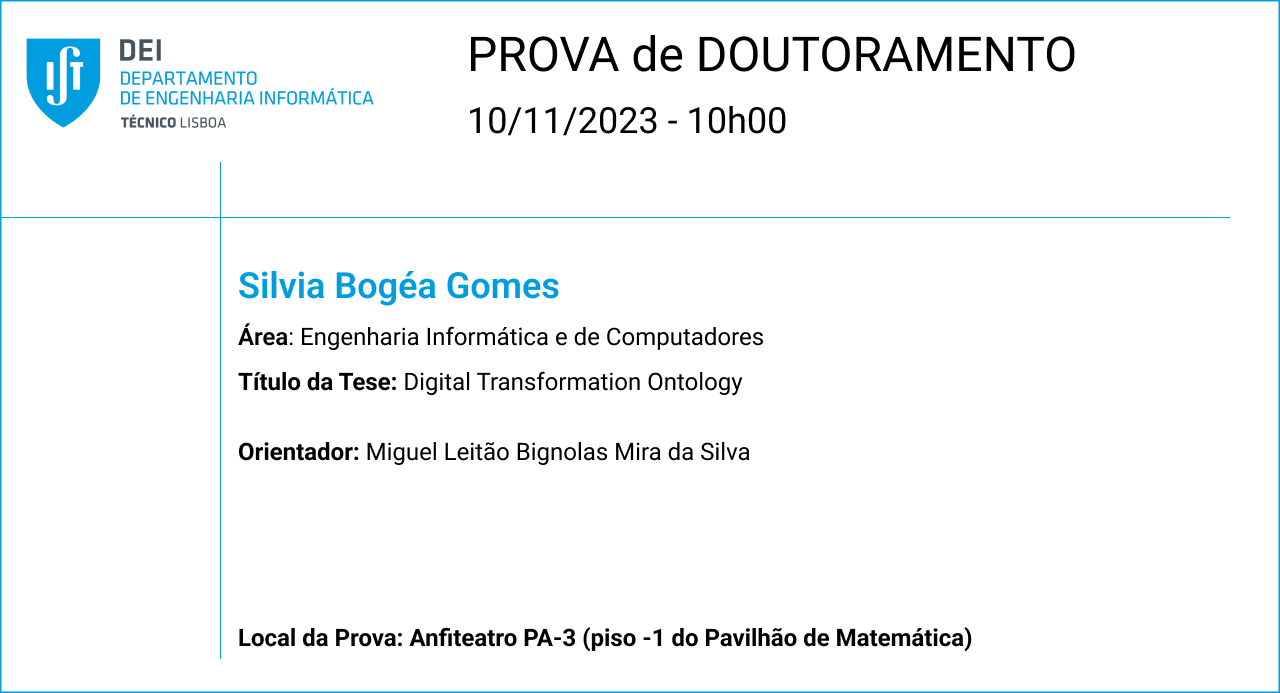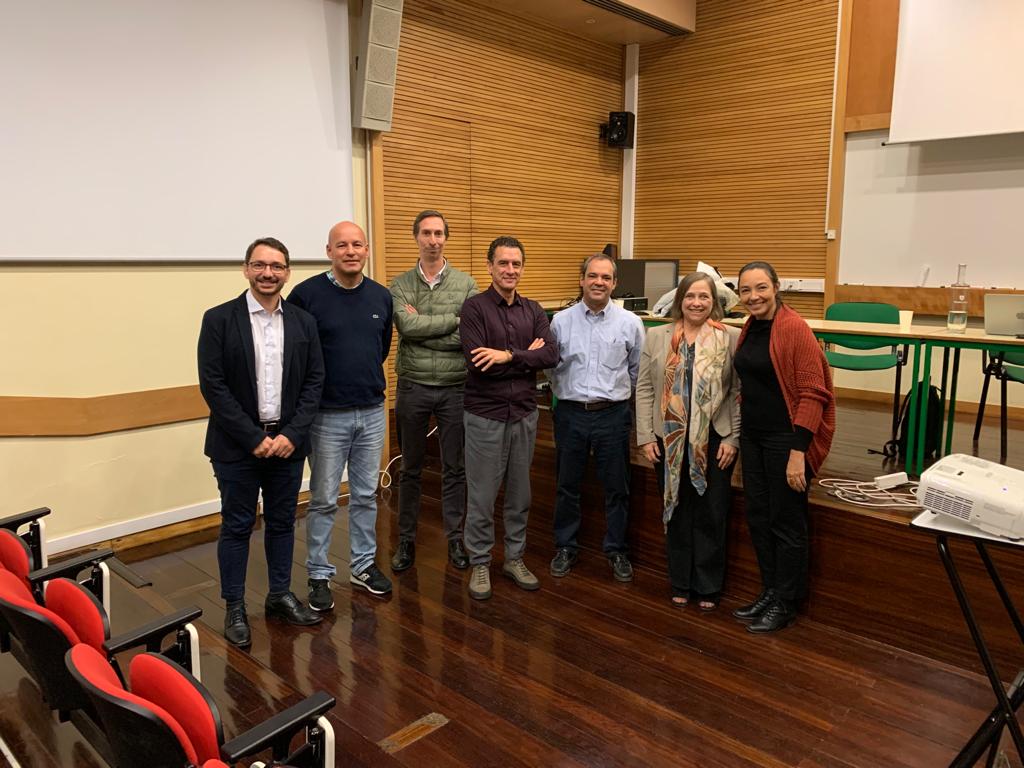Prova de Doutoramento da aluna Silvia Bogéa Gomes

Área: Engenharia Informática e de Computadores
Título da Tese: Digital Transformation Ontology
Local da Prova: Anfiteatro PA-3 (piso -1 do Pavilhão de Matemática)
Data: 10/11/2023
Hora: 10h00
Abstract: Physical reality is being created and shaped by digital technologies. Frequently, the digital version comes first, and then the physical version, if necessary. The economy and society have been rapidly digitalized, introducing new habits, novel ways of living together, new cultures, new shapes for traditional businesses, and new types of businesses regularly. The traditional understanding of an information system as representing and reflecting physical reality is becoming obsolete. Even though digital transformation has gained great research interest, the need for a common understanding of this concept is evident. This thesis proposes the Digital Transformation Ontology (DTO) to distinguish and represent organizational digital transformation concepts in an ambiguous way. Moreover, the ontology provides a domain-independent conceptual specification that is able to guide digital transformation initiatives based on a solid theoretical foundation and a clear understanding of digital organizational transformation and related concepts. This thesis' three-tiered research methodology uses the inquiry strategy of design science methods as the first level to answer the thesis' research questions. SABiO methodology was adopted in the second level to develop the artifact. The third level describes the research methods necessary to fulfil the methodological strategy components' requirements. Two sub-ontologies - a Core Ontology of Organizational Transformation (COOT) to study organizational transformation and a Domain Ontology of Digital Transformation (DODT) to study a specific type of digital organizational transformation - comprise DTO to create a reference model representing the digital transformation paradigm. They have been applied in real-world case studies: COOT on a car rental company and DODT on a Portuguese government digital transformation project. The case studies´ results indicate that the proposed ontology for digital transformation was able to represent most relevant concepts of the initiatives analyzed which makes it a viable alternative for supporting such initiatives.

